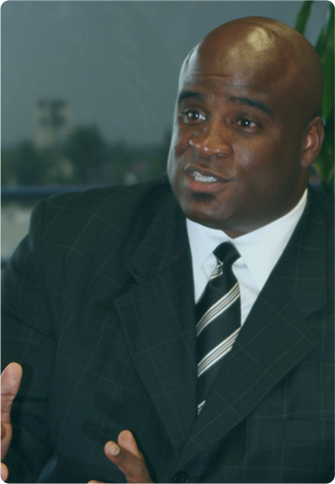
29 Feb Story on Suspension Rates
By Anthony Victoria: Inland Empire Community News
Photo/Anthony Victoria
San Bernardino leaders, parents, and students are determined to “End the Pipeline to Prison and Break the Chains Upon [their] Minds.”
They are referring to the student population currently being affected by educational policy that suspends students for being resistant. Faith-based and community leaders of the Congregations Organized for Prophetic Engagement (COPE), the Inland Congregations United for Change (ICUC), and Youth Action Project (YAP) say it has a direct correlation to the School to Prison Pipeline.
Both organizations, along with the support of parents and students, gathered at the San Bernardino City Unified School District board meeting earlier tonight to urge board members to address the need for a moratorium on Section 48900-K (Willful Defiance) of the California Educational Code. The policy allows for school administrators to suspend students who disrupt school activities or otherwise willfully defy their authority.
They recommended that the board adopt Progressive Discipline Matrix practices that will promote positive behavior and restorative justice, update policy on willful defiance that aligns to state policy, and define the role of police on campus and their usage of citations in specific situations.
Inland Congregations United for Change (ICUC) youth organizers Ayla Lopez (left), Sara Arroyos (center) and Jennifer Elizarraraz (right) dressed in prison clothing as a sign of protest.
COPE executive director and New Life Church pastor Sam Casey believes that Section K and other similar “zero tolerance” policies give the impression that it is acceptable to suspend, expel, and arrest the most vulnerable students. Despite discriminatory laws like Jim Crow no longer being in effect, Casey said racist legacies still persist in laws like Willful Defiance.
“I don’t feel hopeful about our district when we are suspending students, arresting 10-year-old boys and exposing them to a system that they might not be able to recover from later on in life,” he said. “This no longer could be a mode of operation for this school district.”
According to recent research done by the Center on Juvenile and Criminal Justice, San Bernardino is one of two major cities whose school district officers have authority to arrest students. American Civil Liberties Union of Southern California (ACLU) community engagement and policy advocate Luis Nolasco pointed out that the report highlights the school officer arrest policy (implemented by SBCUSD in 1997) that has resulted in approximately 59,290 students being arrested through 2013. During the 2013-14 school year, of the 9,618 suspensions given, 30.7-percent were classified under Willful Defiance.
In addition, district data reports show disproportionate numbers among African-American children. Despite only making up 15-percent of the student population, they account to 19.4-percent of Section K suspensions, 14.3 of all suspensions, and 28-percent of school arrests.
“We know that the Prison Pipeline is a real thing,” said Nolasco. “Criminalization of youth is happening in our region and it’s been done through zero tolerance policies. It’s time for San Bernardino to step forward in bringing justice for our localities and our youth.”
SBCUSD officials have implemented Positive Behavior Support (PBIS), which provides staff and faculty intervention to at-risk students, and a Youth Court that will allow students to provide a support system for struggling peers.
ICUC youth leader and Arroyo Valley High School student Ayla Lopez said as the “class clown” she was enrolled into the PBIS program during the eighth grade. Her experience in PBIS helped her deal with her academics and other issues.
“I was lucky there were adults that didn’t give up on me, despite my discipline issues,” Lopez alluded. “All these kids need is for someone to show them they are important. This is why we need to make sure that each school is getting the support and funding they need to be able to fully implement this program.”
In June school board members Abigail Medina, Barbara Flores, and Michael Gallo sat down with ACLU, COPE, ICUC, and YAP leaders and gave their commitment to introducing policy on Section K, reviewing district policy around the ticketing and arresting of SBCUSD students, as well as coming up with a recommendation to curb or eliminate the issue. Medina and Flores remain dedicated to the community’s requests.
“We have to get rid of this institutionalized racism,” Flores said. “It harms our kids, policies that contribute to the pipeline to prison that targets black and brown boys. We now have the board to shift that, and we are committed to that.”




